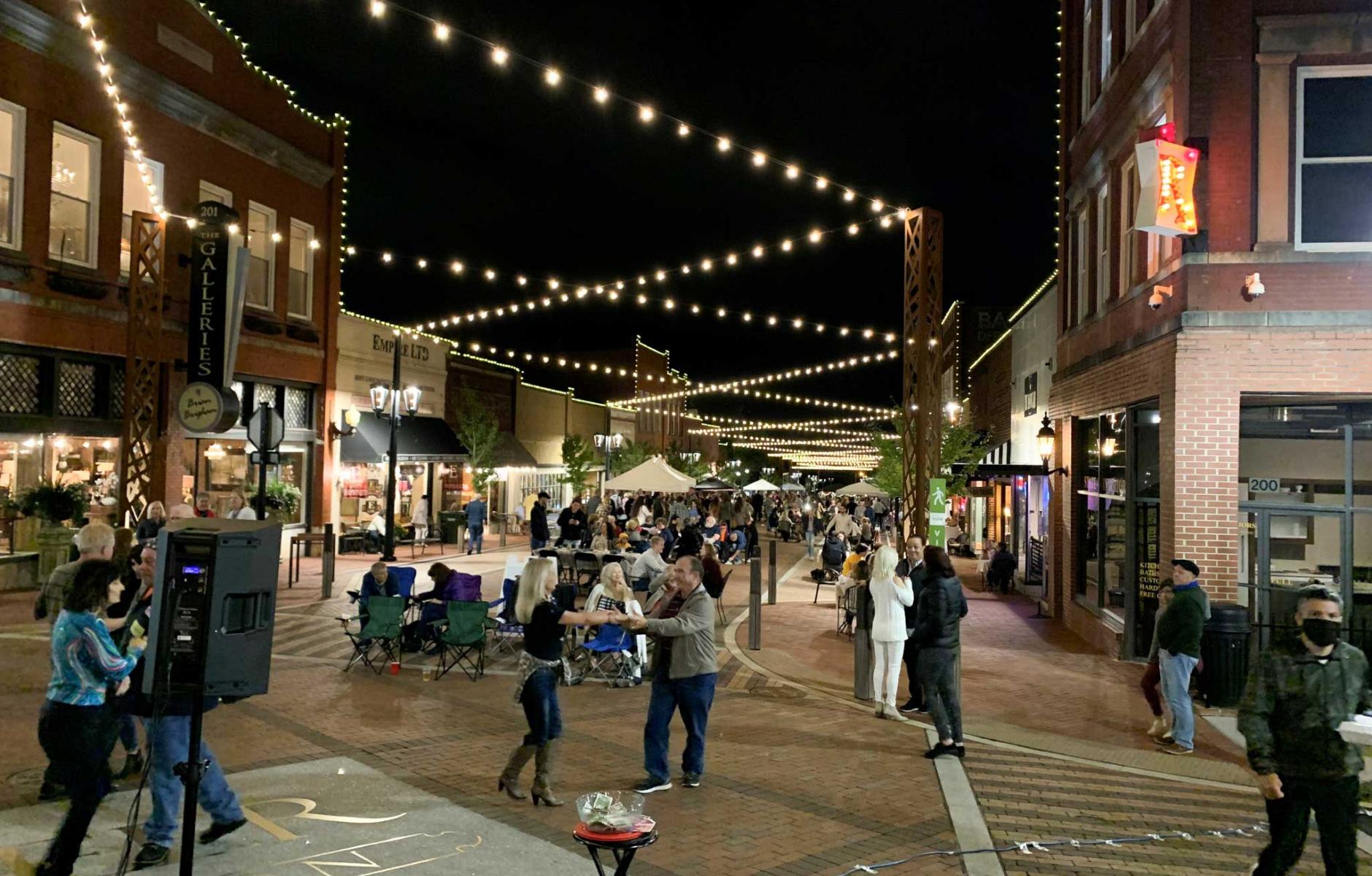
Streetscape plan helps revive historic downtown
Public Square is highlighting top articles from 2024. The small city of Greer, South Carolina, shows the magic that can be worked by improving downtown streets. A design firm studied connectivity, parking, placemaking, and open space, creating a plan that the city implemented to transform the entire downtown.
A historic railroad town in South Carolina, Greer needed a downtown revitalization. “Over the years, the city’s most valued asset had become unusable, unwalkable, and derelict, focused on vehicular experience only while the retail and business continued to turn over,” says design firm Kimley-Horn.
A Downtown Streetscape Master Plan (DSMP) analyzed nine streets for functional and aesthetic improvements to the public realm, with particular attention to the pedestrian experience, the design team explains. The DSMP studied connectivity, pedestrian safety and walkability, parking, urban open space design, and placemaking. The team conducted what planner Jeff Speck calls a “walkability study” of downtown, a process that would benefit many cities across the US. After the study, the team designed the landscape and hardscape for implementation.
Trade Street, Greer’s main street through downtown, was converted to a flexible-use, shared street that could be closed to vehicles for special events (an underground electric system was installed to power concerts and street vendors). The new street section reduces lane widths for motor vehicles to slow traffic and eliminates curb separation. The design uses “the amenity zone (e.g. trees, bollards, street lighting, and seating elements) to shield pedestrians from the day-to-day vehicular realm,” the team notes.

When the street is closed for festivals and other events, the entire right-of-way becomes a public space. “These improvements are attracting new investments and strengthening the City of Greer’s economy,” notes Mayor Rick Danner.
Greer is a small city (population 42,000) in the northwestern end of the state, experiencing strong population growth, particularly since 2020. The project name, Greer Station, is inspired by “Greers Station,” the historic railroad depot founded in 1873, around which the downtown was built.
The timing of the project, completed during the pandemic, allowed downtown activities to take place outdoors. “They held events, they moved dining to the street, they danced, and they developed programming for the community that is currently being used today,” Kimley-Horn explains.

Parking analysis and planning were key to unlocking pedestrian-oriented strategies. The team had to prove to the city, through analysis and data, that it did not have a parking problem. “With community support, we were able to improve the pedestrian experience and vibrancy of downtown, lessening the importance of parking directly in front of the desired destination,” says the team.
A strong emphasis was placed on tree canopy, which is often an issue downtown with the intensity of the hardscape. Consequently, the plan employed a network of “structural-supporting and soil-volume-maximizing ‘sylva cell’ systems that line both sides of Trade Street and handled portions of the street stormwater conveyance” Kimley-Horn explains.

The design includes custom street lighting that emulates historic gas lanterns and pedestrian-scale festival lighting that crosses the street overhead. As is often the case in implementing a walkability plan for downtown, Greer replaced 100-year-old sewer lines before replacing the pavement and landscaping.
“Since the completion of the $12 million project,” the firm reported in 2023, “the City has seen over $200 million reinvested into the core and currently is seeking developers for a mixed-use multifamily development in downtown estimated at over $70 million.”
The team concludes: “The City now has a one-of-a-kind downtown and main street that has been a catalyst for economic growth and development.”




